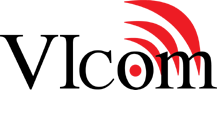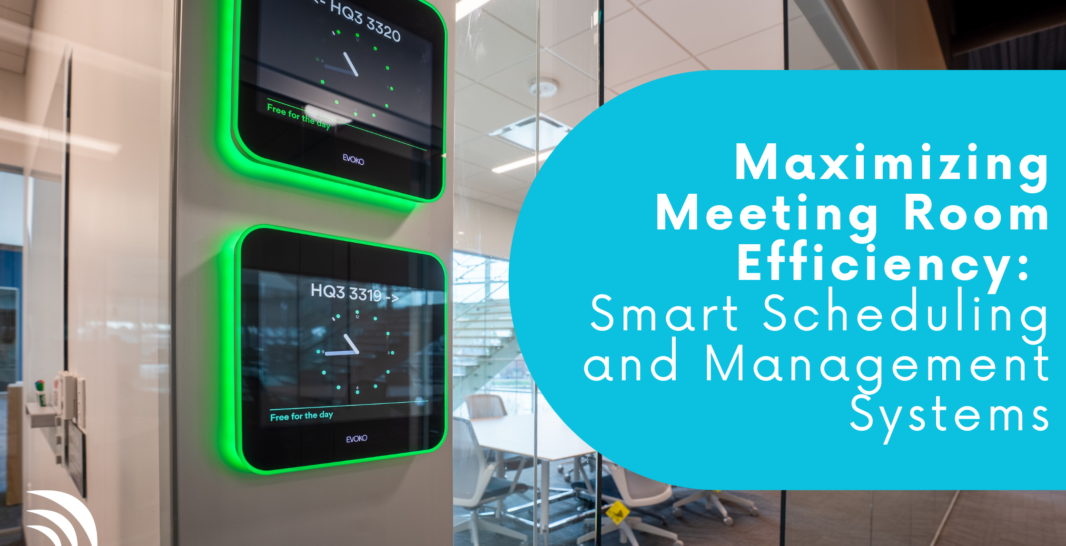In today’s fast-paced corporate environment, where seamless collaboration and optimized space usage are critical, the management of meeting rooms has emerged as a significant challenge. Overbooked rooms, double-bookings, and unused reserved spaces cause frustration and inefficiencies, leading to both financial losses and reduced productivity.
As organizations continue to embrace digital transformations to remain competitive, the need for smarter, more efficient meeting room management systems has become paramount. In this blog, we’ll explore the common problems associated with traditional meeting room management and how smart scheduling solutions can help companies improve efficiency, eliminate errors, and make better use of their office real estate.
The Problems with Traditional Meeting Room Management
Effective meeting room management goes beyond simply reserving a space for your team to gather. In many companies, traditional systems for scheduling meetings—such as manual sign-ups, ad hoc calendars, or outdated software—present numerous challenges.
Double-Bookings and Scheduling Conflicts
Most organizations still rely on manual tools or disconnected software to manage room bookings. These solutions, while functional on the surface, often lead to double-bookings or other scheduling conflicts. When employees book meeting spaces manually—or directly communicate with each other without a central system to regulate and track the process—it’s common for scheduling errors to occur. The result? A room full of people waiting outside a “booked” room, only to find that another group is already inside.
Wasted Space and Time
It’s common for employees to reserve conference rooms only to cancel last-minute, delay meeting times, or simply not show up. As a result, meeting spaces go unused, yet remain unavailable to others. Conversely, employees may find themselves wasting valuable time searching for an open meeting room, only to be thwarted by outdated calendars or miscommunications.
Lack of Real-Time Availability Information
Many organizations rely on static calendars that are rarely updated to reflect meeting changes, last-minute cancellations, or real-time availability. This creates confusion, as employees lack visibility regarding which rooms are genuinely accessible at any given moment. When combined, these inefficiencies in traditional methods of meeting room management lead to disruptions in workflow and diminished productivity.
The Features of Modern Room Scheduling Software
To address modern meeting room challenges, businesses are adopting smart scheduling systems with powerful features designed to maximize efficiency and eliminate frustrations. Let’s explore the key capabilities that modern scheduling platforms provide.
Intuitive Room Booking Interfaces
Smart scheduling solutions are designed with user experience in mind. A clutter-free, intuitive interface allows employees to quickly search for available rooms and make bookings on any device—whether they are on a desktop, tablet, or smartphone. Employees should be able to view the current room availability, review room specs (e.g., seating capacity, AV equipment), and make reservations with a single click, streamlining the process.
Integration with Calendar and Collaboration Tools
The best smart room scheduling tools integrate seamlessly with existing calendar and collaboration platforms like Google Calendar, Microsoft Outlook, and Slack. When these tools are synchronized, users have full visibility of room schedules within familiar platforms, which allows them to avoid double bookings. Availability updates are instantaneous, and reminder features help minimize no-shows by alerting employees of their upcoming bookings.
This integration also enhances cross-functional collaboration, as employees have a central space for planning meetings and ensuring everyone involved has access to essential information.
Permissions and Usage Controls
For more complex organizations, managing who has access to different meeting spaces is essential. Modern room booking software allows you to implement detailed permissions and management controls. For example, companies can limit access to executive boardrooms or restrict certain spaces for specific departments, ensuring they’re used appropriately and reducing chances of misuse.
This functionality is particularly valuable in large enterprises with numerous rooms catering to various functions and personnel levels. Advanced control settings also let businesses set shared room management rules, ensuring that multi-department teams can coordinate efficiently.
Advanced Capabilities to Maximize Room Efficiency
Beyond the intuitive features of smart meeting room scheduling, companies are increasingly turning to more advanced, data-driven capabilities to make sure their spaces are being used as efficiently as possible.
Occupancy Sensors
One transformative feature that smart scheduling tools offer is IoT-based occupancy sensors. These sensors help detect whether a meeting room is actually in use, providing feedback to the scheduling software to adjust real-time availability accordingly.
For instance, if a meeting no-show occurs, the scheduling system can automatically release the room for others to book, ensuring it doesn’t sit idle. This automation tackles a key issue many organizations face—premium real estate going unused due to poor scheduling habits.
In essence, these sensors ensure organizations are maximizing room utility by comparing booked time versus actual room usage, providing insights into booking habits and opportunities for optimization.
Usage Analytics and Data Insights
Advanced scheduling systems come equipped with robust analytics tools that provide a wealth of insights into how meeting rooms are used. Managers can assess data like:
- Average meeting length
- Peak usage times
- The most (and least) popular rooms
- Room usage over time, providing trends and patterns
By analyzing these data points, facility managers can make smarter decisions about office layouts and space management. For example, a consistently underused conference room could be repurposed into a training or breakout space, while rooms that are in high demand during certain periods may prompt a review of meeting scheduling practices.
AI-driven systems can even provide predictive analytics, enabling organizations to identify peak periods and dynamically adjust scheduling based on past usage.
Financial and Productivity Benefits of Smart Room Management
The transition to a smart scheduling system doesn’t only improve usability and collaboration. It provides tangible financial and productivity benefits.
Increased Productivity
When employees no longer have to navigate the maze of manual booking systems, wasted time and dropped meeting opportunities are drastically reduced. With easy visibility into room availability and fewer back-and-forth communications related to booking changes, employees can focus on what truly matters: their work.
Furthermore, ensuring that rooms are always available, thanks to automated release functions and re-booking features, allows for fewer workflow disruptions.
Cost Savings on Real Estate
Meeting rooms represent a significant portion of corporate real estate expenses, especially in key business hubs. When spaces are underutilized, your organization is missing out on capital that could be better spent elsewhere. Smart scheduling systems enable higher utilization of existing spaces, allowing companies to avoid additional investments in new conference rooms or unnecessary office expansion.
Moreover, the detailed data generated by these systems helps organizations make informed decisions about optimizing—and potentially scaling down—underused real estate, leading to greater operational savings on electricity, maintenance, and HVAC costs.
Avoiding Overheads Associated with Cancellations and No-Shows
Smart scheduling systems also help mitigate costly last-minute cancellations and no-shows. By integrating real-time updates, automated reminders, and features such as dynamic cancellation policies, businesses can significantly reduce waste, ensuring spaces are available to those who need them most.
By adopting smarter meeting room scheduling systems designed to address modern workplace challenges, companies can significantly enhance their operational efficiency. Whether it’s through intuitive booking interfaces, seamless integration with collaboration tools, or real-time insights powered by IoT sensors and AI, these solutions deliver tangible productivity and cost-saving benefits. If your organization is ready to streamline its meeting management, consider investing in a smart scheduling system to maximize your office space and boost productivity, one room at a time.
VIcom has over 20 years of experience assisting organizations just like yours with their AV and Meeting Space needs. If you’re ready to talk to someone about how we can assist you, simply fill out the form below and we’ll be in contact!

